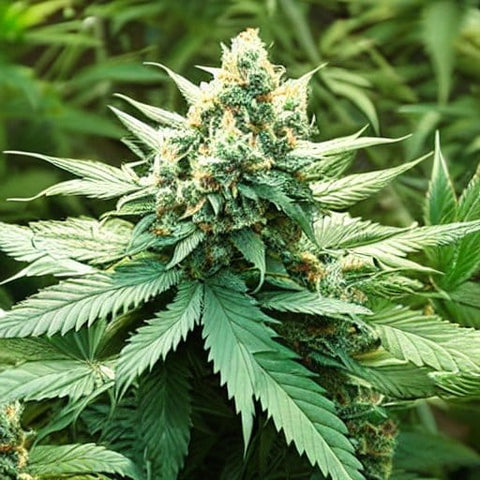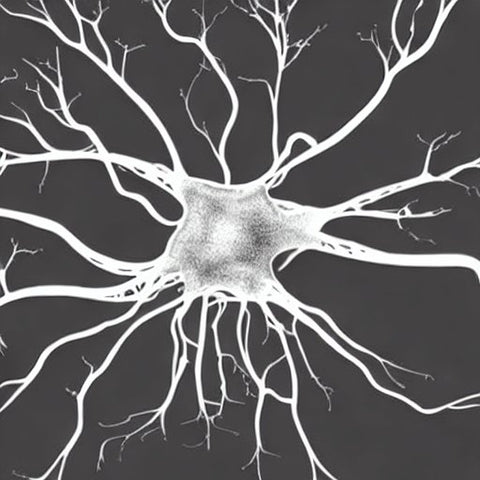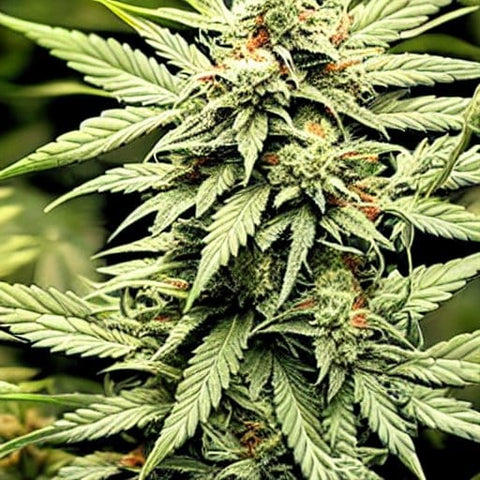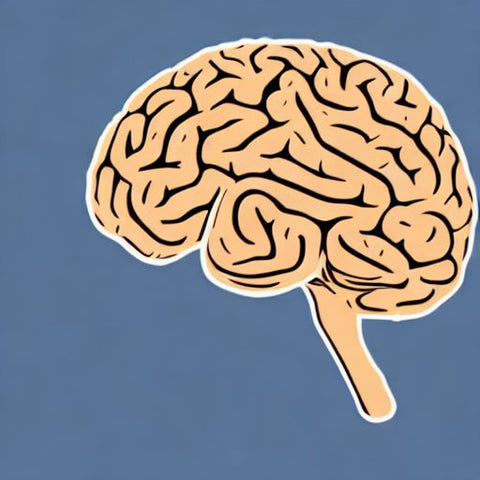Does Marijuana Cause Memory Loss?
It is essential to have an understanding of what takes on in the body after marijuana use. The neuronal connections in the hippocampus, which are crucial for memory, are known to become more fragile when exposed to the toxins that are produced by the plant. The degree of attention and memory that one has may suffer as a result of this.
Marijuana and relation to memory loss:
- Short-term memory loss: A reduction in one's ability to recall recent events The psychoactive components in marijuana, in particular THC, have been shown to have an effect on the hippocampus, the region of the brain that is in charge of creating new memories. While under the influence of marijuana, this might make it harder to build new memories and remember previous occurrences, which can lead to memory problems.
- Loss of long-term memory: The use of marijuana for an extended period of time has been linked to a reduction in the function of the hippocampus. This reduction in function can result in memory problems, including an inability to recall past events and, in some cases, a loss of memory that is permanent.
- Impairment of cognitive function: Marijuana has been shown to have an adverse effect on cognitive processes such as attention, learning, and decision-making, all of which may have an impact on memory.
- Age: People who are younger may be more vulnerable to the effects that marijuana has on memory than individuals who are older.
- Tolerance: Chronic marijuana users may develop a greater tolerance to the effects that marijuana has on memory, which implies that the effects of marijuana may become less prominent with time.
- Genetics: It's possible that certain people's genes make them more susceptible to the negative effects that marijuana has on memory than others.
- Other considerations: Other factors, such as an individual's general health, mental health, and the use of other drugs in conjunction with marijuana, may potentially influence the connection between marijuana usage and memory loss.
Medical marijuana causes memory loss
Even though marijuana is used by a large number of individuals for therapeutic purposes, it has been linked to a number of memory problems. It's possible that this is due to the effects that THC has on the brain.
It may be difficult for some individuals to remember what they have previously learnt in school or to remember what they have to accomplish on a daily basis. This may be especially true for those who have a lot of responsibilities. In addition to this, regular use of cannabis has been shown to lessen a person's desire to further their education.
According to the findings of one research, regular users of marijuana have a tendency to have a shorter attention span. It also shown that frequent users had smaller frontal cortices, which are crucial for the processing of memories, than individuals who did not use it consistently.
Research on the effects of THC on rats has been carried out by the National Institute on Drug Abuse (NIDA). They discovered that when a daily dosage of THC was administered to the rats, the hippocampus, which is the primary region of the brain involved in the development of memories, decreased to the same extent as it did in normal-age rats.

The link between marijuana use and memory loss is not clear, despite the fact that certain research have demonstrated a correlation between the two. Other researches have come to the opposite conclusion, concluding that cannabis usage results in greater issues with short-term memory than with long-term memory.
Talking to your physician is the most effective approach to find out whether or not using cannabis will have an effect on your ability to remember things. They will be able to assist you in determining the degree of risk you are exposed to and will suggest an appropriate dose.
Cannabidiol, often known as CBD, is a component of marijuana that does not produce intoxicating effects. This presents an additional choice. It has been shown that certain people suffering from memory deficiency diseases may benefit from it from a therapeutic standpoint.
Loss of Memory in the Short Term
The psychoactive substances found in marijuana, notably THC, have the potential to have an effect on the region of the brain known as the hippocampus, which is in charge of the formation of new memories. While under the influence of marijuana, this might make it harder to build new memories and remember previous occurrences, which can lead to memory problems. Studies have indicated that using marijuana may impede a person's capacity to encode new information, making it more difficult to generate new memories. [Citation needed] [Citation needed] This effect is normally fleeting and might last anywhere from a few hours to a few days after using marijuana.
Memory loss over the long term
The use of marijuana for an extended period of time has been linked to a reduction in the function of the hippocampus, which may result in an impaired ability to remember previous activities. Heavy marijuana users are more likely to have this impact, which may sometimes be long-lasting and even irreversible in extreme circumstances. Studies have shown that frequent use of marijuana may lead to a reduction in the volume of the hippocampus, which in turn can have an effect on the user's ability to remember things and do other cognitive tasks.
Impairment of Cognitive Function
Marijuana use has been shown to impair cognitive function, including attention, learning, and decision-making. [Cited in:] Memory is similarly susceptible to being impacted by these impacts. Research has revealed that using marijuana may decrease one's capacity to pay attention and concentrate, which can make it challenging to take in new information and tough to develop new memories. In addition, using marijuana may have an effect on one's capacity to make decisions and plan ahead, both of which can interfere with one's ability to organize and recall memories.
The Role of Age and Tolerance
Memory loss may be a consequence of marijuana use that is more likely to be experienced by younger individuals than by older persons. According to a number of studies, the effects of marijuana use on memory and other cognitive processes are far more pronounced in adolescents and young adults than they are in senior citizens. Additionally, chronic marijuana users may have developed a larger tolerance to the effects that marijuana has on memory, which implies that the effects of marijuana may be felt less strongly with time.
The connections between neurons in the hippocampus become less robust when THC is present
Tetrahydrocannabinol (THC), the psychoactive component of marijuana, is thought to impair the connections between neurons in the hippocampus, according to the findings of many research that were published in the last few years. Because of this, changes in behavior may occur as a consequence of disruptions in the neurobiology of the hippocampus and the prefrontal cortex. The significance of these results for both the knowledge of the brain and the development of treatments for dementia are discussed.
The endocannabinoid system is very important to the process of controlling the plasticity of synapses in the brain. Additionally, it has a role in the regulation of the immune system and depression. Neurons are responsible for the expression of CB1 receptors, which are essential components of the endocannabinoid system.

A recent research that was conducted on mice gives evidence that long-term usage of cannabis may be harmful to the hippocampus. THC injections at a dose of 10 mg/kg were given twice daily to mice by the researchers. Tolerance developed over a period of 36 hours. During these tests, the mice showed signs of having learning and working memory issues due to their abnormal behaviors.
In a manner analogous, THC caused a neuroinflammatory state, which resulted in an increase in iNOS and TNFa. On the other hand, similar effects were not seen in a mouse strain that had undergone genetic modification.
According to these studies, THC may not influence the hippocampus in humans in the same manner that it does in other animals. On the other hand, they do bring attention to the possibility that THC-related medications may be used to treat neurological problems.
Researchers conducted an experiment in which they examined the effects of THC on the hippocampus of both juvenile and adult mice. Gene networks that are involved in cell morphogenesis and dendritic formation were altered in both sets of mice after exposure to the medication. In contrast to their younger counterparts, adult mice exhibited no changes in the level of COX2 expression in their bodies.
THC use in adolescents and adults was associated with decreased activity in the prefrontal cortex of the brain. Because of this, the individual had difficulty recognizing new items.
THC gives off the impression of being the responsible older brother
Memory impairment is one of the primary side effects of marijuana use. It is not only the short-term effects of cannabis that are dangerous; rather, it is the long-term impacts of cannabis as well. The same is true for the use of alcohol. Abuse of alcohol has been linked to difficulties with one's memory as well as other neurological issues.
On the other hand, there is no evidence to suggest that using marijuana would result in a lasting decrease in your memory. In point of fact, abstaining from cannabis usage is the most effective strategy to protect one's memory from the negative effects of that drug.
The fact that the plant contains many cannabinoids, one of which is the psychoactive compound known as THC, is the most apparent explanation for this. This chemical is accountable for a significant portion of the psychoactive properties that the medication has.

THC binds to certain receptors in the brain, namely those that are found in the regions of the brain that are accountable for the development of memories. It has an impact on the body's defense mechanisms as well.
Delta-9, often known as D-9, is the most prevalent form of THC and is typically reserved for medicinal use. This type looks to be rather comparable to the D-8 version; however, its potency seems to be lower.
The effects of high doses of THC are not as well understood, nor is it certain whether or not they are even detectable. On the other hand, the results of a recent poll of people who use cannabis that was conducted online show that the effects of THC and marijuana are about the same in size.
In another piece of research, the effects of THC on short-term memory were investigated. On tests that evaluated memory functions, high-level drug users had scores that were lower than those of drug users who did not use the substance.
Memory loss is caused by products with low levels of THC and CBD
Cannabidiol, often known as CBD, is found in cannabis in quite high concentrations and is thought to have both antipsychotic and anxiolytic properties. Due of its beneficial effects on health, research into cannabinoids other than THC has become more popular. CBD, in contrast to THC, does not seem to have any potential for abuse. On the other hand, it is conceivable that these substances may interact with other drugs in a way that would result in adverse consequences.
A research was carried out in the state of Colorado to investigate the effects of cannabis use on memory as well as other neurobiological and behavioral processes. The acute effects of varying ratios of THC to CBD were evaluated via the use of a word recognition memory test.
Flyers were sent out, and participants were recruited via posts on social media platforms. They were reviewed over the phone by knowledgeable research team members. Those who were qualified to take part in the study were issued a card that included a set of instructions for locating a nearby dispensary.
At the beginning of the study, each participant was given a verbal recognition memory exercise to complete. After receiving therapy for three days, participants were instructed to ingest the cannabis strain that had been given to them. On the last day, the identical strain of cannabis was used for consumption.
The participants were subsequently given a cannabis product (either THC alone or THC combined with CBD). The identification memory exercise was carried out by both groups fifty minutes after receiving an ad libitum dosage. When the levels of THC in the blood were raised after usage, the results revealed that there was a considerable drop in memory accuracy.
Previous research has shown that cannabidiol, or CBD, may mitigate the learning deficits brought on by THC. It's possible that the interaction between CBD and THC is to blame for this.
The cannabinoid CBD has also been investigated for its potential as a therapy for cognitive deficits brought on by schizophrenia, inflammation, hepatic encephalopathy, and Alzheimer's disease. According to the findings of a few studies, large amounts of CBD may lessen the intensity of these symptoms.
A shortened attention span and memory loss have both been linked to chronic THC consumption
There is some disagreement over how acute THC exposure affects a person's cognitive performance. However, research conducted on rats suggests that prolonged exposure may have an effect that is long-lasting. Chronic exposure to THC may have a detrimental influence on a person's cognitive function as well as their ability to focus their attention. For instance, at 11-12 months of age, mice that were given a dosage of THC comparable to that which is found in a cigarette showed evidence of nerve cell death. There have only been a few of studies that have looked at the impact that chronic THC use has on cognition, and the results have been contradictory. According to the findings of certain research, prolonged exposure to THC may speed up the death of neurons in the hippocampus, which is a necessary component for the preservation of long-term memories.

It should come as no surprise that the usage of marijuana has been connected with some extremely fascinating impacts on the functioning of the brain. These include a wide variety of the effects described above, in addition to some somewhat undesirable effects on executive functioning and the ability to regulate reactions. In addition to this, the endocannabinoid system plays a role in the mechanisms that underlie neurodevelopment. As a result, it is necessary to have an understanding of the part that cannabis plays in the processes involved here.
Specifically, the endocannabinoid system and the receptors for endocannabinoid systems in the brain are vulnerable to a wide variety of stresses. This results in a number of negative impacts, including an increase in impulsivity, a slowdown in processing speed, and a shortening of attention span. On the other side, a well functioning endocannabinoid system has the potential to be manipulated in order to bring about favorable psychological effects. Therefore, research on the effects of marijuana on cognition and mental health in general is crucial for both the treatment of sickness and the prevention of disease.
CBD seems to function in a manner similar to that of THC's responsible older sister
THC and CBD both have psychotropic qualities, yet each one is responsible for its own unique effects, despite their apparent similarities. For example, research seems that the combination of THC and CBD is more helpful in avoiding memory impairment than either molecule on its own. CBD is derived from the cannabis plant.
Because of the interaction between these two substances and the cannabinoid receptors found in the brain, neurotransmitters are released. When the concentration of one chemical is increased, the effects of the other compounds are reduced. These effects might be different depending on when the medication was taken and how it was taken.
Memory tests were administered to participants in a recent study in which researchers investigated the acute effects of varying ratios of THC to CBD. They discovered that larger concentrations of both chemicals were linked to improved episodic memory. [Citation needed] Nevertheless, these are only the early findings. To have a more in-depth understanding of the effects of THC and CBD on cognition, further research is required.
Cannabis has been suspected by researchers for a very long time to contain characteristics that hinder memory. A new research discovered evidence that CBD could be the key to counteracting this impact. The findings of this study were published in the journal Scientific Reports.
In the primary investigation, a mobile speech recognition memory task was carried out. The use of cannabis with varying concentrations of THC and CBD was randomized among the participants. We evaluated them based on their reaction times, hit rates, and accuracy.
The hit rate was a measurement of the percentage of replies to examined words that were properly classified as "old." There was not a significant correlation between it and the quantity of THC found in the blood. Nevertheless, it was a good sign of the product's capacity to stimulate recognition memories in people's brains.
Both Genetics and Other Factors Contribute to
There is a possibility that the memory-impairing effects of marijuana are hereditary for certain individuals. According to the findings of several studies, some genetic differences may make some people more prone to experiencing the negative effects that marijuana has on memory. In addition, the association between marijuana usage and memory may be influenced by a variety of other variables, including the user's general health, mental health, and the combination of marijuana use with the use of other drugs.
It is important to keep in mind that the connection between using marijuana and memory is a complicated one, and that the effects of using marijuana on memory might differ from one person to the next. To completely grasp the impact that marijuana has on memory, the studies have not reached a definite conclusion, and additional study is required. When deciding whether or not to use marijuana, it is essential to take into account both the possible adverse consequences of using marijuana and the potential health hazards of using it over a prolonged period of time.


















































Leave a comment